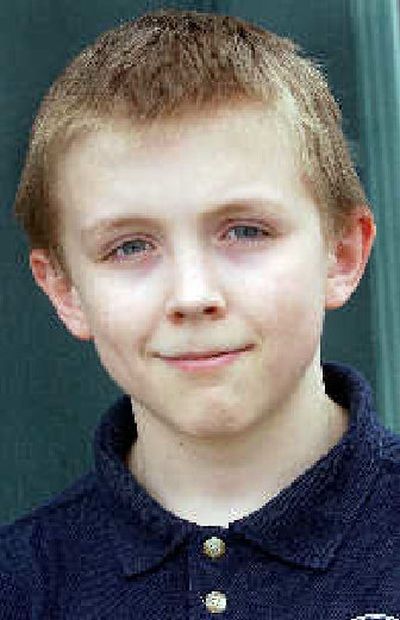Natural affinity for numbers

It’s not uncommon for toddlers to pester parents at the store, but at age 3, Lewis Ellis used a different strategy. He asked his mother if they were in Idaho or Washington, then calculated the price of the item he wanted, including the tax.
“He’d just figure it out in his head,” said his mother, Rhonda.
This natural affinity for numbers came in handy at the MATHCOUNTS competition where Lewis, 11, took first place in the regional individual competition. His team of four from Coeur d’Alene Academy placed second in the region and second in the state event held on March 11 in Boise. His teammates were Austin Enfield, Steven Munson and Ryan Ward, all eighth-graders. The competition is for sixth- through eighth grade and Lewis was the sole seventh-grader competing on his team. He did well, considering his disadvantage.
“At state there were a lot more geometry questions, and I’m only in algebra,” he said.
He placed 15th out of 100 in the state individual competition. The challenge is broken up into sections of easier questions, followed by more difficult questions, with points awarded for each correct answer. Then a countdown round takes place, designed like a “Jeopardy” game show with buzzers.
Lewis is well-suited to the “Jeopardy” style because of his knack for quickly computing answers in his head. It’s a talent that he’s used for years. He recalls one incident in the third grade when his class was collecting canned goods. As they neared the halfway point of the goal, the students were asked to figure out how many more items were needed to reach 500. The first one to run to the office with the correct answer would win. Lewis knew the solution before the teacher was finished asking the question. It took him longer to convince the teacher he was ready to run with the answer than it took him to figure out the problem in his head, he said.
Such quick thinking has not always worked in Lewis’ favor. He remembers frequent criticism in his earlier grades for not showing his work. He has learned to do as his teachers ask, but still dislikes the fact that writing out problems takes longer.
“I could probably do the same thing in my head in 10 seconds,” he said.
Lewis was ranked No. 1 in his school for his grade in the written American Math Competition for the past two years and scored in the top five percent in the country. He also can rattle off the first 100 digits of the infinite decimal pi at the drop of a hat. He was listed last year as the youngest to memorize and recite 115 digits, in a contest held annually on March 14 (that’s 3-14). This year Lewis reached 204 digits officially, but in unofficial practice sessions has recited 374 of the memorized digits, which have no repeating pattern. The world adult record was recorded in 1995 by a Japanese man who recited 42,195 digits.
Besides math, Lewis enjoys inline speed skating, watching the news and going to the shooting range with his father, Don. He’s performed in several plays and this February he traveled from his home in Post Falls to Washington, D.C., after being nominated to attend the Junior National Young Leaders Conference. In the future he’d like a career that uses his math abilities, like computers, engineering or architecture.
On shopping sprees these days, Lewis is more of a help to his mother. No calculator is needed, since he can keep track of the total as she shops, including taxes and decimal points.
To read more about Lewis’ pi ranking achievement visit pi-world-ranking-list.com.